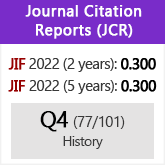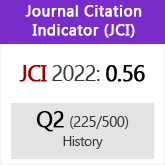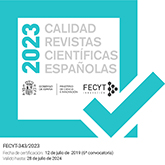Mass graves gone missing: Producing knowledge in a world of absence
DOI:
https://doi.org/10.3989/chdj.2014.022Keywords:
Techno-scientific expertise, kin-based knowledge, archival records, forensic science, social memory, Spanish Civil War, FrancoismAbstract
On May 1st, 2014 members of the historical memory team from the Aranzadi Sciences Society arrived in Oropesa de Toledo. The objective: to locate two mass graves containing the remains of Republicans killed in the weeks after Franco’s troops entered the town in 1936. Despite evidence regarding the mass graves’ existence, they were never found. Drawing on empirical, ethnographic data collected in the town of Oropesa in the months following this “unsuccessful” exhumation, this paper narrates the curious story of two graves that have “gone missing.” It considers the intellectual labor exerted to produce historical knowledge in a context where municipal archives remain inaccessible and family histories are marked by silence and dis-information. The author suggests that the absence of information –the dearth of historical, narrative evidence– regarding the lives of the defeated makes the production of historical and forensic knowledge a complicated affair. It tracks how kin-based knowledge and scarce archival documents are gathered and animated in order to make exhumations possible. Considering the forms of knowledge that are needed in order to engage techno-scientific expertise in meaningful ways, the paper attends to the important role that kin-based knowledge and seemingly “unimportant” documents play in processes of historical enunciation.
Downloads
References
Acevedo, Carlos et al. (2012) CT o la cultura de la Transición: Crítica a 35 años de cultural española. Debolsillo, Barcelona.
Agamben, Giorgio (1998) Homo Sacer. Sovereign Power and Bare Life. Stanford University Press, Stanford.
Aguilar, Paloma (1996) Políticas de la memoria y memorias de la política: El caso español en perspectiva comparada. Editorial Alianza, Madrid.
Aguilar, Paloma (2002) Memory and amnesia: The role of the Spanish Civil War in the transition to democracy. Bergen Books, New York.
Axel, Brian Keith (2002) "Introduction: Historical Anthropology and Its Vicissitudes". In From the Margins: Historical Anthropology and its Futures, edited by Axel, Brian Keith. Duke University Press, Durham. http://dx.doi.org/10.1215/9780822383345-001
Bell, Catherine M. (1992) Ritual Theory, Ritual Practice. Oxford University Press, New York.
Benjamin, Walter (1968) "Theses on the Philosophy of History". In Illuminations, edited by Arendt, Hannah. Harcourt Brace Jovanich, New York.
Box, Zira (2010) España, año cero: La construcción simbólica del franquismo. Alianza Editorial, Madrid.
Burbridge, Peter (2011) "Waking the Dead of the Spanish Civil War: Judge Baltasar Garzón and the Spanish Law of Historical Memory". Journal of International Criminal Justice, 9: 753-781. http://dx.doi.org/10.1093/jicj/mqr027
Crossland, Zoe (2013) "Evidential Regimes of Forensic Archaeology". Annual Review of Anthropology, 42: 121-137. http://dx.doi.org/10.1146/annurev-anthro-092412-155513
Csordas, Thomas J. (2004) "Evidence of and for what". Anthropological Theory, 4: 473-480. http://dx.doi.org/10.1177/1463499604047922
Daston, Lorraine (1994) "Marvelous Facts & Miraculous Evidence in Early Modern Europe". In Questions of Evidence: Proof, Practice, & Persuasion Across the Disciplines, edited by Harootunian, Harry D., Chandler, James, and Davidson, Arnold I. University of Chicago Press, Chicago: 243-274.
Da Silva Catela, Ludmila y Jelin, Elizabeth (editors) (2002) Los archivos de la represión: documentos, memoria y verdad. Siglo XXI, Madrid.
De Certeau, Michel (1984) The Practice of Everyday Life. University of California Press, Berkeley.
Douglass, Carrie (1997) Bulls, Bullfighting, and Spanish Identity. University of Arizona Press, Tuscon.
Ferrándiz, Francisco (2008) "Cries & Whispers: Exhuming & Narrating Defeat in Spain Today". Journal of Spanish Cultural Studies, 9(2): 177-192. http://dx.doi.org/10.1080/14636200802283704
Ferrándiz, Francisco (2013) "Exhuming the defeated: Civil War mass graves in the 21st-century Spain". American Ethnologist, 40:1: 38-54. http://dx.doi.org/10.1111/amet.12004
Ferrándiz, Francisco (2014) El pasado bajo tierra: Exhumaciones contemporáneas de la Guerra Civil. Anthropos, Barcelona.
Foucault, Michel (1991) Discipline and Punish: The Birth of the Prison. Penguin Books, Harmondsworth.
González Duro, Enrique (2012) Las rapadas: El franquismo contra la mujer. Siglo XXI, Madrid.
Gutiérrez Molina, Jose Luis (2014) La justicia del terror: Los consejos de guerra sumarísimos de urgencia de 1937 en Cádiz. Editorial Mayi, Cádiz.
Halbwachs, Maurice (1992) On Collective Memory. University of Chicago Press, Chicago.
Hirsch, Marianne (2012) The Generation of Post-Memory: Writing & Visual Culture After the Holocaust. Columbia University Press, New York.
Holmes, Douglas and Marcus, George (2005) "Cultures of Expertise and the Management of Globalization: Toward the Refunctioning of Ethnography". In Global Assemblages: Technology, Politics & Ethics as Anthropological Problems, edited by Ong, Aihwa and S. Collier. Stephen J. Blackwell, Oxford.
Jelin, Elizabeth (2003) State Repression and the Labors of Memory. University of Minnesota Press, Minneapolis.
Jerez-Farrán, Carlos and Amago, Samuel (editors) (2010) Unearthing Franco's Legacy: Mass Graves & the Recovery of Historical Memory in Spain. University of Notre Dame Press, Notre Dame.
Joyce, Christopher and Stover, Eric (1991) Witnesses from the Grave: The Stories Bones Tell. Ballantine Books, New York.
Juliá, Santos (2006) Memoria de la guerra y del franquismo. Editorial Taurus, Madrid.
Koestler, Arthur (2004 [1937]) Dialógo con la muerte: Un testamento español. Amaranto Editorial, Madrid. PMid:15217931
Komar, Debra and Buikstra, Jane (2008) Forensic Anthropology: Contemporary Theory & Practice. Oxford University Press, New York.
Ledesma, José Luis (2005) "'La Causa General': Fuente sobre la violencia, la Guerra Civil (y el franquismo)". Spagna Contemporanea, 28: 203-220.
Mate, Ricardo (2008) La herencia del olvido. Errata Naturae Editores, Madrid.
Mu-oz, Laura and Chavés Palacios, Julián (2014) "Extremadura: Behind the Material Traces of Franco's Repression". Culture & History Digital Journal, 3(2): e020. http://dx.doi.org/10.3989/chdj.2014.020
Namer, Gerárd (1994) "Postscript". In The Social Frameworks of Memory, Halbwachs, Maurice. Albin Michel, Paris.
Papailias, Penelope (2005) Genres of Recollection: Archival Poetics & Modern Greece. Palgrave, New York. http://dx.doi.org/10.1057/9781403981462
Resina, José Ramon (2000) Disremembering the Dictatorship: The Politics of Memory in the Spanish Transition to Democracy. Rodopi Press, Amsterdam.
Rodríguez, Emmanuel (2013) Hipotesis democracia: Quince tesis para la revolución anunciada. Traficantes de Sue-os, Madrid.
Ruido, Maria (2008) "Notas sobre Plan Rosebud: Sobre imágenes, lugares y políticas de memoria (2006- 2008)". In Plan Rosebud: Sobre imagénes, lugares, y políticas de la memoria, edited by Ruido, Maria. CGAC, Santiago de Compostela. PMid:19368297
Sánchez, Pura (2009) Individuos de dudosa moral: La represión de las mujeres en Andalucía (1936-1958). Editorial Crítica, Barcelona.
Silva, Emilio (2003) Las fosas de franco: Los republicanos que el dictador dejó en las cunetas. Temas de hoy, Madrid.
Solé, Queralt (2006) "Los archivos de la represión". In La represión franquista: Mito, olvido y memoria, edited by ARMH de Valladolid y Palencia. Universidad de Valladolid, Valladolid.
Stoler, Ann (2009) Along the Archival Grain: Epistemic Anxieties & Colonial Common Sense. Princeton University Press, Princeton.
Turner,Victor (1967) "Betwixt and Between: The Liminal Period in Rites de Passage". In The Forest of Symbols: Aspects of Ndembu Ritual. Cornell University Press, Ithaca: 93-111.
Verdery, Katherine (1999) The Political Lives of Dead Bodies. Columbia University Press, New York.
Vilarós, Teresa M. (1998) El mono del desencanto: Una crítica cultural de la Transición española (1973-1993). Siglo XXI, Madrid.
Villalta Luna, Alfonso Manuel (2014) "The Archives of Terror and Mourning in Contemporary Spain". Culture & History Digital Journal, 3(2): e021. http://dx.doi.org/10.3989/chdj.2014.021
Weld, Kirsten (2014) Paper Cadavers: The Archives of Dictatorship in Guatemala. Duke University Press, Durham. http://dx.doi.org/10.1215/9780822376583 PMCid:PMC3913375
Published
How to Cite
Issue
Section
License
Copyright (c) 2014 Consejo Superior de Investigaciones Científicas (CSIC)

This work is licensed under a Creative Commons Attribution 4.0 International License.
© CSIC. Manuscripts published in both the printed and online versions of this Journal are the property of Consejo Superior de Investigaciones Científicas, and quoting this source is a requirement for any partial or full reproduction.All contents of this electronic edition, except where otherwise noted, are distributed under a “Creative Commons Attribution 4.0 International” (CC BY 4.0) License. You may read here the basic information and the legal text of the license. The indication of the CC BY 4.0 License must be expressly stated in this way when necessary.
Self-archiving in repositories, personal webpages or similar, of any version other than the published by the Editor, is not allowed.

















